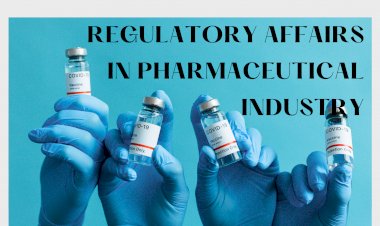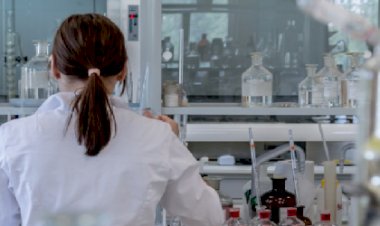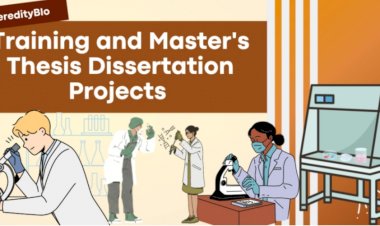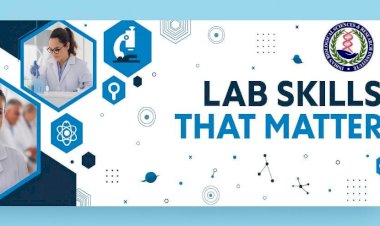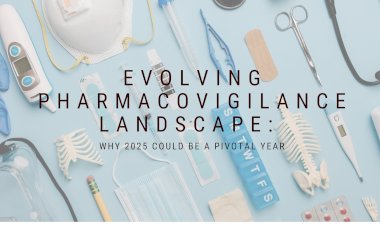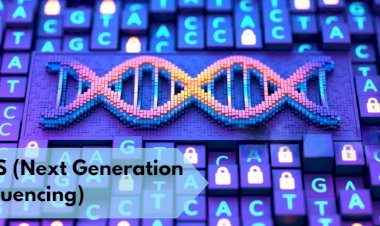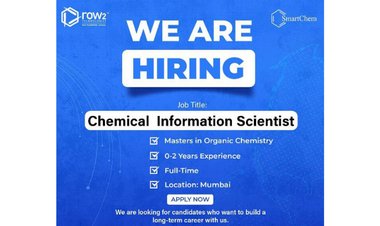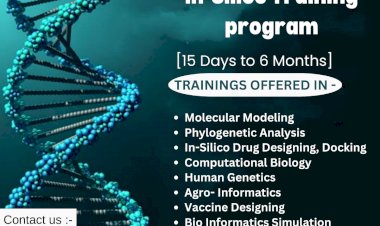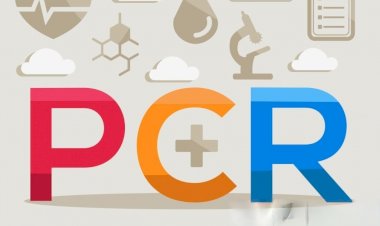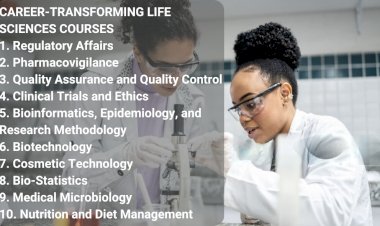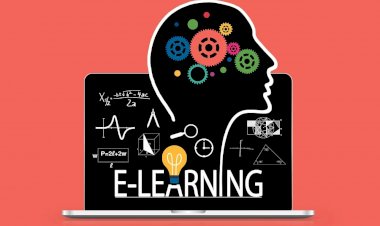Career-Transforming Life Sciences Courses in India You Should Know About
This blog highlights top career-transforming life sciences courses in India, including Regulatory Affairs, Pharmacovigilance, Bioinformatics, and Biotechnology. These courses equip professionals with the skills needed to succeed in the rapidly growing healthcare and biotech sectors.

CAREER-TRANSFORMING LIFE SCIENCES COURSES IN INDIA YOU SHOULD KNOW ABOUT
The life sciences field is booming, and with the rapid advancement of technology and healthcare systems, there’s a growing demand for professionals who are well-versed in various specialized areas. Whether you’re looking to advance your career or enter this diverse industry, pursuing a relevant course can provide you with the tools and knowledge needed to succeed.
In India, there is a wide range of life sciences courses that can enhance your skills and open up opportunities in diverse sectors. Below are some of the top career-transforming life sciences courses you should consider staying ahead of the curve.
1. Regulatory Affairs
Regulatory affairs professionals play a critical role in ensuring that products, especially pharmaceuticals, medical devices, and biotech products, comply with regulatory requirements. This course covers topics like drug development, approval processes, and global regulations. It prepares you for careers in regulatory affairs, ensuring the safety and efficacy of products in the market.
The regulatory environment is constantly evolving, and businesses need experts who understand these complexities to bring life-saving products to market safely.
2. Pharmacovigilance
Pharmacovigilance is the science and activities relating to the detection, assessment, understanding, and prevention of adverse effects or any other drug-related problems. A course in pharmacovigilance equips you with the skills to monitor drug safety and contribute to public health.
With the increasing number of drugs entering the market, there’s a growing demand for pharmacovigilance professionals who can ensure drug safety and mitigate risks.
3. Quality Assurance and Quality Control
Quality Assurance (QA) and Quality Control (QC) are crucial components of the life sciences industry, especially in pharmaceuticals, biotech, and healthcare. This course trains professionals to ensure that products meet certain quality standards, from production to testing and distribution.
The demand for high-quality products is critical in health and life sciences, and businesses need experts who can implement stringent QA and QC practices.
4. Clinical Trials and Ethics
Clinical trials are the cornerstone of medical research and drug development. A clinical trials and ethics course will introduce you to the various stages of clinical research, trial design, ethical considerations, and regulatory guidelines.
As the healthcare and pharmaceutical industries grow, clinical trial professionals are in high demand to help develop new treatments and ensure patient safety through ethical practices.
5. Bioinformatics, Epidemiology, and Research Methodology
Bioinformatics combines biology, computer science, and information technology, while epidemiology focuses on disease patterns. This interdisciplinary course will teach you data analysis, research methodology, and statistical tools necessary for solving complex health-related problems.
As the healthcare sector increasingly relies on data analysis, professionals skilled in bioinformatics and epidemiology will be highly sought after for their ability to interpret complex data to make informed decisions.
6. Biotechnology
Biotechnology is a broad field that integrates biology with technology to develop innovative solutions in healthcare, agriculture, and environmental conservation. This course covers topics such as genetic engineering, microbiology, and bioengineering.
Biotechnology is one of the fastest-growing sectors, with wide applications in medicine, agriculture, and environmental sustainability. A degree in biotechnology can lead to career opportunities in research, development, and industry.
7. Cosmetic Technology
Cosmetic technology deals with the development, testing, and marketing of cosmetic products. This course offers insights into formulating beauty and skincare products, ensuring safety standards, and managing production.
The beauty industry is expanding rapidly, and cosmetic technologists play a crucial role in ensuring that products are safe, effective, and meet regulatory standards. This is a growing and exciting field with high demand.
8. Bio-Statistics
Bio-statistics is the application of statistical methods to the analysis of biological data. This course equips you with the necessary skills to analyze and interpret data related to public health, clinical trials, and medical research.
Professionals skilled in bio-statistics are crucial in research, epidemiology, and clinical trials, helping to make data-driven decisions that influence health policies and outcomes.
9. Medical Microbiology
Medical microbiology focuses on the study of microorganisms responsible for infections in humans. The course covers infectious agents, disease mechanisms, diagnostics, and therapeutic interventions.
With the rise of global pandemics and infectious diseases, medical microbiologists are in high demand to combat diseases, develop vaccines, and improve diagnostics and treatments.
10. Nutrition and Diet Management
A course in nutrition and diet management equips you with knowledge about food science, human nutrition, and health management. It prepares you to guide individuals or organizations on healthy eating practices and disease prevention.
As awareness about healthy lifestyles grows, nutritionists and dietitians are increasingly sought after to help people manage their health, particularly with rising concerns about lifestyle diseases.
11. R-Language
R is a powerful programming language used in data analysis and statistical computing. This course focuses on using R for bioinformatics, genomics, and other life sciences applications.
Proficiency in R is valuable in research, especially when working with large datasets or conducting complex statistical analyses in the life sciences industry.
12. Molecular Human Genetics
Molecular human genetics involves the study of human genes and their roles in health and disease. This course covers genetic testing, mutation analysis, and the application of genetics in diagnostics.
With the rapid growth of personalized medicine and genetic research, there’s a high demand for professionals with expertise in genetics to guide clinical decisions and develop new therapies.
13. Audit and Non-Compliance
This course trains professionals to conduct audits within the life sciences industry to ensure compliance with regulatory standards. It involves learning how to assess and address gaps in compliance across processes.
As regulatory frameworks become stricter, organizations in life sciences need experts to ensure they adhere to industry standards, minimizing risk and maintaining product quality.
14. Intellectual Property Rights (IPR)
Intellectual Property Rights (IPR) protects innovations and creations in the life sciences sector, including patents for pharmaceutical products, medical devices, and biotechnological inventions.
As innovation in biotech and pharmaceuticals accelerates, the need for professionals who can manage patents, trademarks, and copyrights in the life sciences industry is growing.
15. Medical and Scientific Documentation Writing
Medical and scientific documentation writing is a crucial skill that involves creating clear and accurate documentation, such as research papers, medical reports, and regulatory documents.
With the growing emphasis on research and product development in the life sciences industry, skilled writers who can create well-structured, compliant, and accurate documents are always in demand.
16. Good Management and Laboratory Practices
Good Management and Laboratory Practices (GMP and GLP) are essential to ensure the integrity, safety, and quality of laboratory operations. This course teaches you to manage lab resources, ensure compliance, and maintain high standards in lab procedures.
With increasing standards in research and production environments, professionals who understand and implement good laboratory practices are essential for maintaining scientific rigor and product quality.
IBRI Noida’s Role in Advancing Life Sciences Education and Careers:
IBRI Noida plays a crucial role in shaping the future of life sciences professionals by offering specialized courses that align with the rapidly evolving industry demands. The institute provides comprehensive training in areas such as regulatory affairs, pharmacovigilance, bioinformatics, biotechnology, molecular genetics, clinical trials, and good laboratory practices. With a focus on hands-on experience and industry-relevant knowledge, IBRI Noida equips students with the skills needed to excel in critical sectors like healthcare, pharmaceuticals, and biotechnology, ensuring they are well-prepared for the challenges of modern research, clinical practices, and regulatory compliance.
Conclusion
The life sciences field in India is experiencing rapid growth, and pursuing the right courses can open up a world of opportunities across various sectors. Whether you are interested in regulatory affairs, biotechnology, clinical trials, or bioinformatics, there are numerous career-transforming courses available to equip you with the necessary skills. Institutes like IBRI Noida are playing a pivotal role in shaping the next generation of life sciences professionals. By offering specialized programs that focus on practical knowledge, cutting-edge research, and industry standards, IBRI Noida ensures that students are well-prepared to excel in this dynamic and fast-evolving field. With the right training and expertise, you can take advantage of the exciting career prospects in the life sciences industry and contribute to innovations that improve healthcare and quality of life worldwide.
Explore IBRI’s programs today to learn more about genomics trainings and unlock new career opportunities and stay ahead in the life sciences industry.
You can contact us at - Email: info@ibri.org.in or call at: (+91) 9999509892, 9971441910








